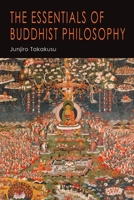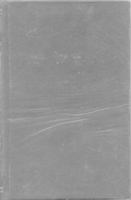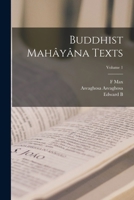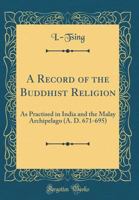Buddhist Mahayana Texts (Sacred Books of the East)
Select Format
Select Condition 
Based on Your Recent Browsing
Book Overview
Customer Reviews
Rated 4 starsSolid 19th-century scholarship
Good material, but needs sorting out. Apparently this reprint was originally published by Oxford University Press in 1894. However, the erratic pagination strongly suggests that the various parts were published separately and then combined without renumbering. (In this review all diacritical marks will be ignored, of course.) Part I (pp. xiii, 1-207, including index) consists of "The Buddha-carita of Asvaghosa" (cf.,...
0Report
Rated 4 starsFrom Theravada to Pure Land
This inexpensive volume contains several important Buddhist scriptures. Included is the Buddha Karita, the story of the Buddha's life. It is a prose translation of the original poem by the great Indian literary master, Asvaghosha. The translation was done a long time ago and so their are many Christo-centric interpretations of words that Buddhists would never use,like "soul" and "penance". Such terms should be more like "consciousness"...
0Report
Rated 5 starsIncludes a beautiful, classic life story of the Buddha
This book consists of very early (1894) translations of several classic Buddhist texts, including the Buddha-karita, the Pure Land Sutras, and the Heart Sutra. For a more updated and scholarly translation of the Pure Land Sutras, I would recommend "The Land of Bliss: The Paradise of the Buddha of Measureless Light," translated by Luis Gomez, and of course there are a number of fine modern translations of the Heart Sutra...
0Report


























